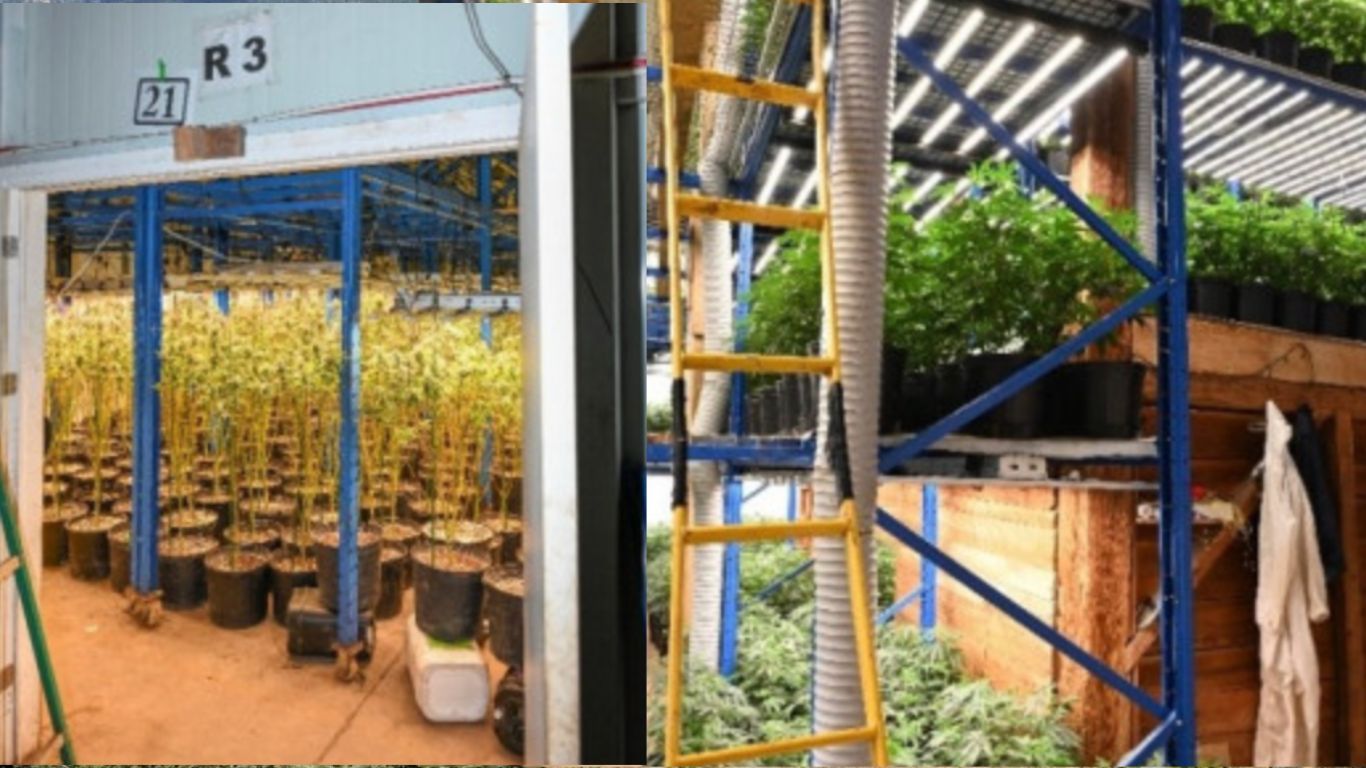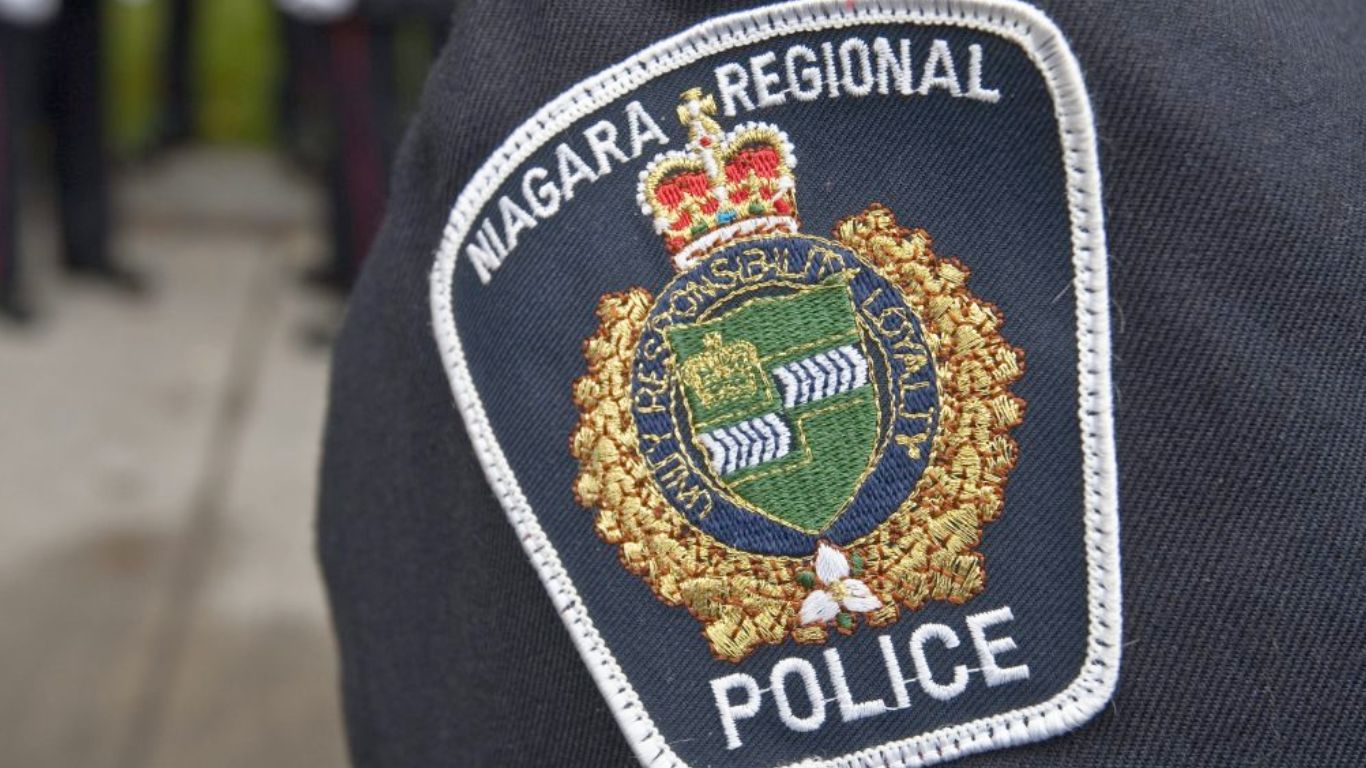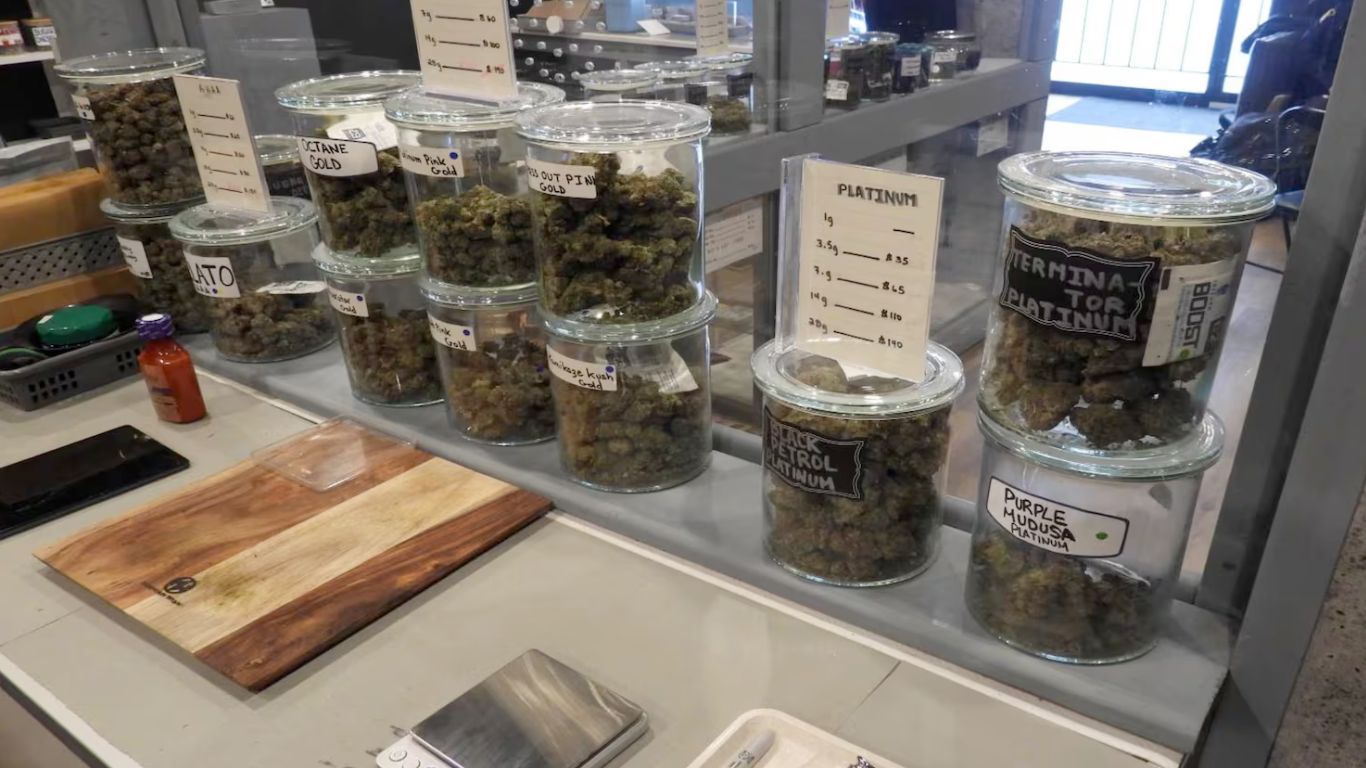
Police in Ontario seized 345 kilograms of cannabis and thousands of cannabis plants from an address in Elgin County after a referral from Health Canada.
The referral from the inspectors noted that the address was associated with three expired Health Canada registrations to produce or designate someone to produce cannabis for medical purposes.
In total, investigators found 6,060 cannabis plants with 529 recently harvested outdoor plants, as well as 345 kilograms of dried, processed cannabis. The seizure took place at an address on Talbot Line in Elgin County.
Images shared by the OPP online show a large greenhouse full of cannabis plants.
The investigation remains ongoing. A statement online from the OPP says that “cannabis is a lucrative commodity, attracting those involved in organized crime. Profits from illegal cannabis sales are often laundered to finance other criminal activities.”
Health Canada inspections ramped up
Inspections of these types of licence sites have increased in the past few years, as Heath Canada continues their efforts to put more scrutiny on personal and designated medical production licences used to divert cannabis into the illicit market.
There have long been concerns from different levels of government over the potential for misuse and diversion of cannabis from these types of licences associated with high gram totals.
Health Canada has ramped up inspections of such licences, more than 300 in the last two years. The most recent annual report also included 20 compliance and enforcement activities (other than inspection) for registered personal and designated production of cannabis for medical purposes, such as conducting seizures and destructions.
Of the 160 inspections of registered personal and designated production of cannabis for medical purposes locations in 2023-2024, 74 were in British Columbia, 63 in Ontario, 18 in Quebec, and five in New Brunswick. In the previous year, the majority of such inspections (115 out of 170) were in Ontario. In the previous year, the majority were conducted in Ontario.
The federal agency also sends notices to provincial colleges of physicians informing them of health care practitioners connected to numerous high gram-a-day authorizations. In 2020, the Saskatchewan College of Physicians and Surgeons levied a $15,000 disciplinary action against a Saskatchewan doctor found to be profiting from issuing medical cannabis licences in 2018.
In 2021, a medical cannabis patient who had been authorized 100 grams a day had a court reject an allowance for the patient to possess up to 1000 grams in public at a time.
In a memo from October 2022, Health Canada said that since it began a new process to address high authorization amounts through the medical cannabis program, the agency had observed a decrease of more than 50% in the number of individuals registering to produce cannabis for medical purposes.
The memo continued that in September 2021, approximately 47,000 individuals registered with Health Canada. As of September 30, 2022, the number of registered individuals had dropped to approximately 21,700.
Health Canada says it has also refused or revoked more than 1,400 registrations, including over 700 for public health and safety reasons. This represents a 113% increase in refusals and revocations and a 423% increase in the number of refusals and revocations made on the grounds of public health and public safety since March 2022.
While 4,728 healthcare practitioners were associated with registrations made with federally licensed sellers in the previous twelve months, 1,105 were associated with active personal/designated production registrations.
Of those 1,015, there were 233 healthcare practitioners associated with authorizing amounts equal to or above 25 grams per day, and just ten authorized amounts equal to or above 100 grams per day.
Most (78%) healthcare practitioners who authorized more than 25 grams a day were in BC or Ontario. All who authorized more than 100 grams a day were in BC and Ontario. An authorization of 100 grams a day would equate to a limit of 487 plants at any given time. Such licences can also be combined to up to four per location, meaning a designated grower with several authorizations could be growing hundreds or even thousands of cannabis plants with the potential to produce in the hundreds of kilograms of cannabis a year.











